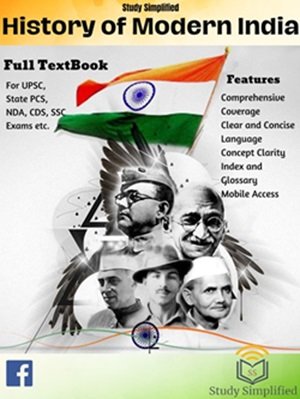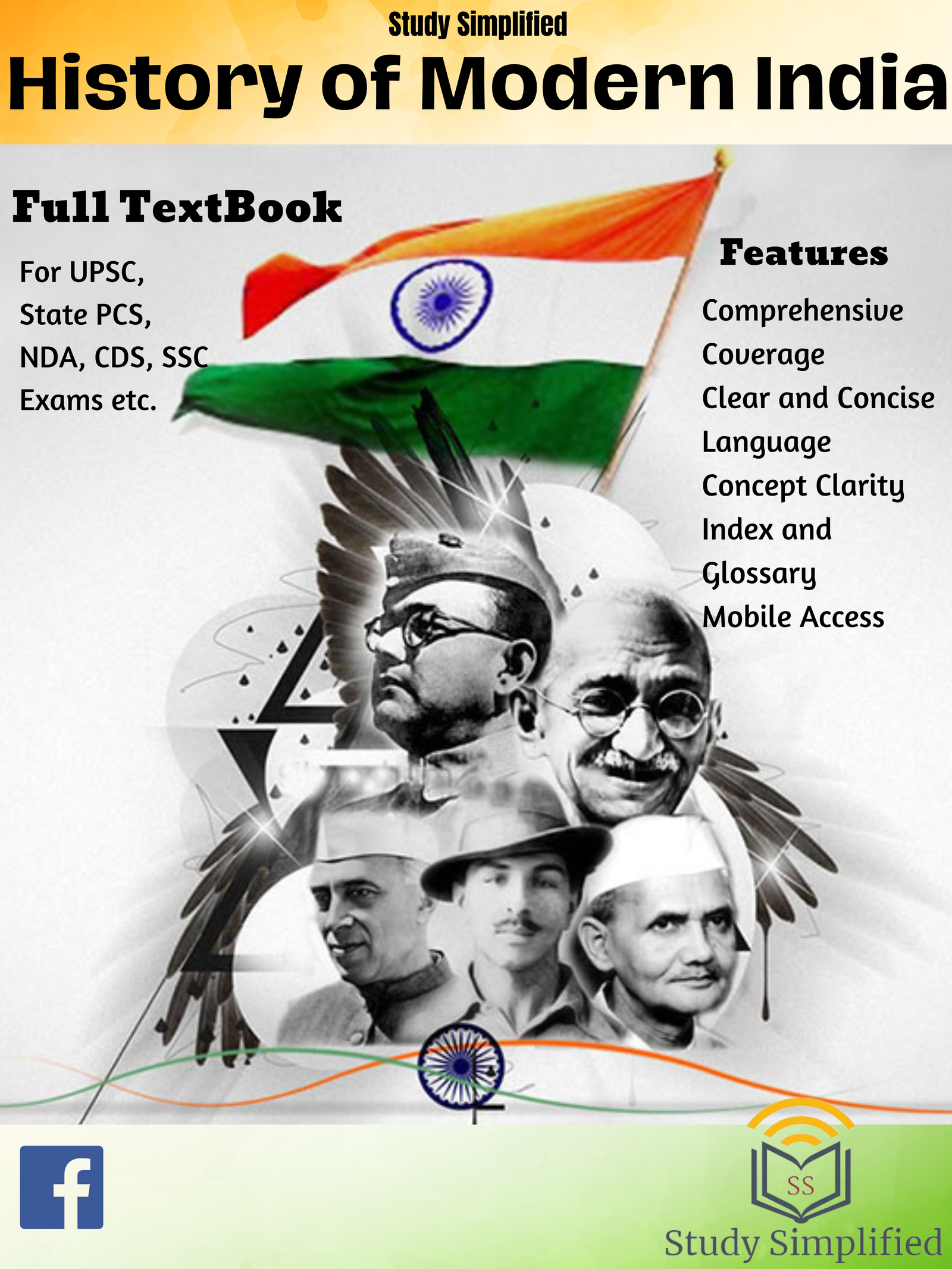History of Modern India Full Book
Why read History of Modern India for UPSC, SSC, PSC and other Exams?
Reading the “History of Modern India” is crucial for various competitive exams like UPSC, SSC, PSC, and others due to several reasons:
- Syllabus Coverage: Most of these exams have a specific section dedicated to Indian history, and modern Indian history is a significant component of it. Therefore, a thorough understanding of this period is essential to score well.
- Understanding the Nation’s Evolution: Modern Indian history spans from the decline of the Mughal Empire to India’s independence in 1947 and its subsequent evolution. Understanding this period helps candidates comprehend the socio-political, economic, and cultural transformations that shaped the nation.
- Contextual Understanding: Many contemporary issues and policies in India have roots in its modern history. Knowledge of this period provides valuable context for understanding current affairs, governance, and societal issues.
- Analytical Skills: Studying history develops critical thinking and analytical skills. Candidates learn to analyze historical events, their causes, consequences, and relevance to the present.
- Cultural Awareness: Modern Indian history introduces candidates to the rich cultural heritage of the country, including its art, literature, architecture, and social movements. This broader cultural understanding is valuable for a well-rounded education.
- Exam Relevance: Questions based on modern Indian history are a staple in these exams. Familiarity with key events, personalities, and movements from this period is essential for answering such questions accurately.
- Essay and Interview Preparation: Knowledge of modern Indian history is often tested in the essay and interview stages of these exams. A strong foundation in this subject helps candidates articulate their thoughts coherently and impress the examiners.
- Career Opportunities: Many government jobs, especially civil services, require a deep understanding of Indian history as part of their job roles. Therefore, proficiency in this subject opens up career opportunities in various government departments and agencies.
In summary, studying the history of modern India is not only crucial for acing competitive exams but also for gaining a comprehensive understanding of the nation’s past, which is invaluable for informed citizenship and effective governance.
Follow UPSC Website for latest updates: https://upsc.gov.in/
Salient Feature of the Book History of Modern India:
- To the Point focus on Important Events
- Short and Crisp
- Easy to remember and Revise
- Good for Note-Making
- Tables included for easy understanding
- All in one Study material for Modern Indian History
- Read online from any Device from anywhere
Contents:
- Sources for the History of Modern India
- Major Approaches to the History of Modern India
- Advent of the Europeans in India
- India on the Eve of British Conquest
- Expansion and Consolidation of British Power in India
- People’s Resistance Against British Before 1857
- Socio-Religious Reform Movements
- A General Survey of Socio-Cultural Reform Movements
- Beginning of Modern Nationalism in India
- Indian National Congress: Foundation and the Moderate Phase
- Era of Militant Nationalism (1905-1909)
- First Phase of Revolutionary Activities (1907-1917)
- First World War and Nationalist Response
- Emergence of Gandhi
- Non-Cooperation Movement and Khilafat Aandolan
- Emergence of Swarajists, Socialist Ideas, Revolutionary Activities and Other New Forces
- Simon Commission and the Nehru Report
- Civil Disobedience Movement and Round Table Conferences
- Debates on the Future Strategy after Civil Disobedience Movement
- Congress Rule in Provinces
- Nationalist Response in the Wake of World War II
- Quit India Movement, Demand for Pakistan, and the INA
- Post-War National Scenario
- Independence with Partition
- Constitutional, Administrative and Judicial Developments
- Survey of British Policies in India
- Economic Impact of British Rule in India
- Development of Indian Press
- Development of Education
- Peasant Movements 1857-1947
- The Movement of the Working Class
- Challenges Before the New-born Nation
- The Indian States
- Making of the Constitution for India
- The Evolution of Nationalist Foreign Policy
- First General Elections
- Developments under Nehru’s Leadership (1947-64)
- After Nehru
- APPENDICES (very useful)
An Appeal to All:
Read Online Only available currently to support us.
You can Read this Book by only accessing this Page.
Kindly support our hard work.
Enjoy the Reading for free and prepare well for Exams.
𝓦𝓪𝓲𝓽 𝓯𝓸𝓻 𝓶𝓸𝓻𝓮 𝓲𝓷𝓽𝓮𝓻𝓮𝓼𝓽𝓲𝓷𝓰 𝓐𝓻𝓽𝓲𝓬𝓵𝓮𝓼.


[…] History of Modern India – https://studysimplified.in/history-of-modern-india-complete-book-read/ […]